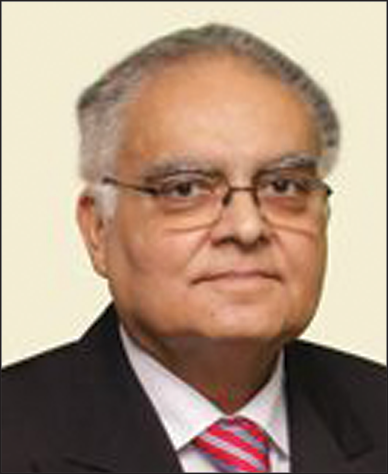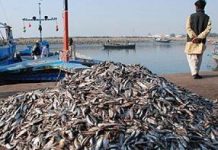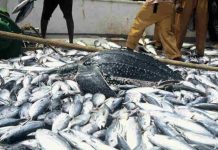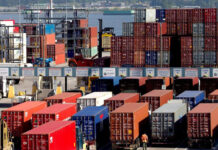By now, it is abundantly clear that the Pakistani economy is not working, at least not for the overwhelming majority of the people in the country, and perhaps not even for the politically well-connected rent-seeking elite for whom the entire economic structure has been distorted in the first place. What, then, is the way forward? The Imran Khan Administration’s economic team, led by Finance Minister Asad Umar, appear to be taking a long time in getting settled in and appear indecisive about what to do next. We at Profit thought we might try to help them along.
Profit contacted five of the top experts on the economy to get their version of what is the right thing to do to put the economy on the right track in the backdrop of falling exports and balance of payments crisis. All five have either directly worked in the government, or else been in a position to advise the government or key figures in the country’s ruling political parties. And four out of the five have doctoral degrees in economics or related disciplines.
These accounts were narrated individually to Taimoor Hassan. They are presented here, without comment from Profit’s usually opinionated editorial staff. [Editor’s Note: That seems harsh. True, but harsh.]
3To solve the long-term balance of payments problem, fix education first

The key determinant of long-term economic growth of the country is the depth and range of innovations that take place within that society
Dr Akmal Hussain
The fundamental reason why Pakistan goes to the IMF repeatedly has to be sought in the structural features of Pakistan’s economy. The pattern of Pakistan’s economic growth is what can be called a ‘stop-go’ pattern. There are periods of relatively high GDP growth followed by very slow growth, where per capita income is either stagnant or even negative in some cases.
The literature on new institutional economics shows that the distinguishing feature between the developed and undeveloped countries is that the developed countries are able to sustain their GDP growth rates and their per capita income growth rates over long periods of time whereas the undeveloped countries are unable to do so. Starting from Ayub’s period, or even earlier, whenever Pakistan had high rates of growth, it ended up with a balance of payments crisis and that is what lands it in the lap of the IMF.
The fact that Pakistan grows in spurts followed by periods of slow growth is intimately linked with the fact that we keep going to the IMF. Their loans provide temporary relief and governments are able to avoid the difficult task of making the structural changes necessary to become independent of IMF bailout packages. The reason why high growth periods come to an end with a balance of payments crisis is because of Pakistan’s exports structure, where the growth of exports is incapable of keeping pace with the import expenditures that are associated with the high GDP growth.
Whenever there is high GDP growth, there is a high import expenditure. More machines have to be imported, more fuel, equipment and industrial raw materials are imported to maintain economic growth. If the growth of exports is slow as compared to imports, then inevitably – as we have seen from our experience – we will end up with essentially a balance of trade crisis which translates into a balance of payments crisis. Therefore, one of the hallmarks of Pakistan’s inability to sustain high GDP growth, and indeed one of the hallmarks of Pakistan’s underdevelopment, is that we can’t export enough and so our capacity is constrained.
Since independence, our exports have been concentrated in the textile industry and it has predominantly been in the low-value end of the textile range. Internationally, the textile industry is known as a ‘sunset industry’ because as global demand for goods and services increases, a smaller and smaller percentage of increased demand goes into expenditure on textiles. So growth of the global export demand for textiles is low.
On top of that, Pakistan has not even adequately graduated from the low-valued added end to the high-value-added end of the textile range, let alone diversify out of textiles altogether. Even within the textile sector, Pakistan is losing its share to its competitors. That is because our exports are not only low-value-added, our cost of production is very high. We are inefficient in the production of textile exportable and the quality is very poor as compared to our competitors, which is why our export capacity is so insufficient that we cannot finance the import requirements of high growth.
In the medium term, we have to diversify our exports out of textiles into high-value-added, knowledge-intensive goods and services because an increasing share of the global exports is coming in the form of demand for knowledge-intensive goods and services. Predominantly, our export policy should concentrate on diversification of exports towards high-value-added, knowledge-intensive goods and services, which will require hard decisions on the part of the government and decisions which require deliberations outside the narrow thinking of mainstream economics. Within orthodox economic thinking it is difficult to grasp what is involved in export diversification towards knowledge-intensive goods.
Recent work by Professor Aghion and others at Harvard University has shown that the key determinant of long-term economic growth of the country is the depth and range of innovations that take place within that society. In other words, the capacity to generate long-term growth, and hence the ability to maintain high rates of export growth, is dependent on the depth and range of innovations in the country. So when we talk about export diversification, we are really talking about developing the capacity for innovation in the country.
Innovation requires research and building an innovation infrastructure in the country. That essentially means bringing about a transformation of the education system to produce people who have the capacity to do critical thinking and do original work, in whatever field that is. Unless the schools and colleges and universities are reconfigured, so as to produce such minds that are capable of original thinking, Pakistan will not be able to develop an innovation infrastructure.
Strangely enough, education reforms are necessary to solve the balance of payments problem in the long-run and a necessary dimension of export policy. And the research has to be at the cutting-edge of knowledge in every field. Mediocrity in research will simply not do. Therefore, to boost exports and growth, there is a need to build new kinds of schools which train students and children to do original thinking and build universities which are capable of producing world-class research.

Presently, the government is trying to support the textile industry by giving them subsidies. This is a policy that is misconceived and counter-productive. It is misconceived because if the aim is diversification of exports, giving subsidies to the industries that are inefficient, low-value-added and which are not competitive in the international market, is throwing good money after bad. It is also counter-productive because the more subsidies you give to such industries, the more difficult it will be to diversify exports.
If the government wants to subsidize industries, it should do it in an intelligent way. An example is South Korea. They first worked out which particular industrial units had the ability to innovate, to improve their technologies and had the capacity to become export-competitive. It was not just a particular industry but precisely the particular industrial units that were supported by the government through subsidies.
At the moment, the category of industry which has to be given subsidy is not textiles but industries such as software, electronics, renewable energy. If the government cannot provide subsidies to tech startups, it can at least provide subsidized credit to young talent freshly graduated with ideas to work on these startups.
The government also needs to think of subsidizing small-scale industries. Because of their smaller size and management structure, these industries are much more likely to be innovative than a very large industry, in Pakistan at least. The agrarian products such as high-value dairy products, packaged meat fruits and vegetables also have considerable potential for exports.
Subsidizing inefficient industries like textiles is a rent you are giving them. Rent can be seen in terms of unearned income. It is a rate of return on an asset including skills which is higher than what you would get in the best alternative use. So if you have an industry that would otherwise go into loss and you start giving them subsidies, and it starts generating profit on the basis of the subsidies, that profit is actually unearned. And that is a kind of rent.
Unfortunately, Pakistan’s institutional structure has been set up in such a way which systematically generates rents for a small coalition of elites. This is the other fundamental issue that needs to be addressed. If Pakistan wants to get out of underdevelopment, get out of this repeated going back to the IMF for loans and avoid getting into repeated balance of payments crisis, the rent-based institutional structure that prevails in the economy needs to be changed. It has deliberately been set up by power elites in such a way that unearned income or rents can be generated for them.
Prime Minister Imran Khan’s original vision was that Pakistan’s long-term development has to be based on its people through the provision of health, education and social protection for all so that the capabilities and potential of Pakistan’s people can be actualized and brought to bear for development. That’s the sort of development we want. But if Pakistan goes to the IMF, it will be going in the opposite direction because the IMF will require cutting down public expenditure. They are going to try to control the import expenditures through contracting the growth rate of the economy. When interest rates are increased they knock out the dynamic, innovative export oriented industrial units that are usually highly leveraged.
So a misconceived short term policy further undermines our potential for exports and increases our dependence on foreign loans in the long run. Slowing down growth will also eventually lead to higher levels of poverty and unemployment.
Dr Akmal Hussain is a Distinguished Professor and Dean, School of Humanities and Social Sciences at the Information Technology University (ITU).
























First step would be to ban all mainstream private media channels and end this 24 hour circus where anchors who also happen to be the most knowledgeable economic experts criticize each and every move by Govt. and make everything debatable and political just to boost their ratings at the expense of national interests.
This is because in order to fix Pakistan’s economy, tough steps like removing subsidies on gas etc, privatization of sick units like PIA, Steel Mills, banning useless imports and importantly establishing ruthless and quick accountability across the board for corrupt people and systems need to be undertaken. There will definitely be a public outcry fueled by political parties who would naturally oppose everything. But without the mainstream media, it won’t lead to societal issue and hence national interests would be better served if ‘paid’ media is kept at bay.
What a strange comment. Instead of banning the mainstream media, Maybe you should try switching off the channel instead?
You rightly point out some of the demons plaguing our economy and banning media is not an issue. If you restrict access of general populace to information/news than don’t you think you are creating and giving rise to societal issues?
@ Author: Great work and great insights!
However, inclusion of some experts who were involved in previous administrations and were part of creating the problem is strange in my view. Maybe some input from more experts would have countered this.
As far as fixing the economy goes, we as a nation should try to support our local startups. Look towards alums of incubators and accelerators, provide feedback and try to take the first step in creating jobs for others.
Thank you Profit for providing quality content.
I subscribe the views that media should be controlled and anchors be removed from their jobs .Anew and young and proper qualified can easily replace them. the two brothers zubair and Umer will play havoc wit economy. their only qualificationa are that are sons of a corrupt general and very ordinary graduates of IBA.
Mr Zubair .a so called management consultant failed to priotize OGDC,rehabilitate steel mills and PIA. An import officer in IBM at saudia arabia does not qualify to become Governer of Sind.Only through army connection he secured this job.Being a former IBA graduate I KNOW HE WAS C grader. similar is the story of Umer and their 3 rd brother at Faiasa bank
There is no magic light switch that can turn the economy on or off. Economic development is based on certain prerequisites. Foremost among these is long term administrative and economic stability. Investors do not to risk their money in countries where political parties stage ‘dharnas’ and public unrest to undermine elected governments. What they find in Pakistan is continuing political instability and amateurs in power who have very little experience or understanding of how a country functions in present-day setting.
Confrontation, meaningless lectures and sermons by people who have no track record is not a substitute for well conceived and properly executed policies. What will help is unity, not division and people with experience who understand government, not well-meaning amateurs and ignorant political mavericks. There is not much time before patience runs out and disillusionment sets in. The
government will lose credibility destroying any hopes of a turn around with it.
K. Hussan Zia.
Pakistan’s Military has essentially APPOINTED their lackey Taliban Khan as Pakistan’s prime minister.
The begging habit of Pakistan’s military and taking U-Turns on promises made and back stabbing the very benefactor (U.S.) are other qualities of Pakistan Military that Taliban Khan inherits !!
There is no future for Pakistan under a bafoon like Taliban Khan.
But we Chinese are more than happy because we PRE-EMPTED and LIQUIDATED Islamic Radical Khan’s wish to re-assess and re-audit CPEC projects that we started under thoughtful and pragmatic Nawaz Sharif Government.
Now, no body can even dare to speak (or even think in their mind) of opposing any Chinese move in Pakistan !!
Slave ISLAMIC superstitious backward beggar societies like Pakistan have NO CHOICE other than to surrender and be subjugated in front of ATHEIST and SOCIALIST Societies like CHINA !!
Hilarious analysis. This in fact shows the mentality of the stupid and arrogant Chinese population who arrive in Pakistan thinking as if they own them. In their own country, they can’t even raise a word against their dictator rulers and here these ugly gross shabby sorry classless idiots come and think they own everything here.
The huge debt accumulated due to CPEC projects by Pakistan is what is causing us to bear Chinese tantrums. No wonder they like Nawaz Sharif so much, who put Pakistan in so much debt and misery while taking kickbacks from the equally corrupt Chinese. Pakistan has a future if it focuses on to be self sufficient rather than relying on China.
It Is Obvious That You Are Just An Indian Troll
indian dog spotted…. using chinese name ,, hahahahaha can not see pak china frndship
Comments are closed.